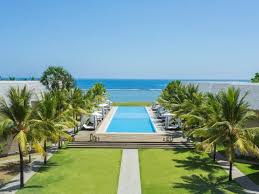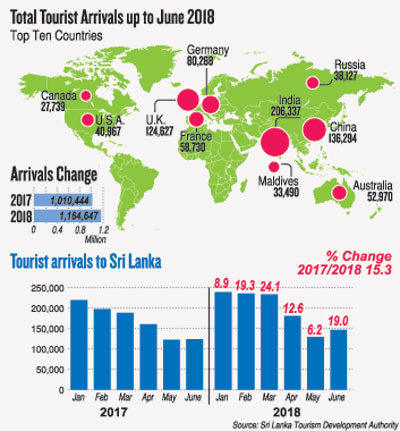Reuters: Sri Lankan shares closed flat on Monday after gaining for two straight sessions on mild profit-booking as investors awaited fresh triggers amid thin trading, brokers said.
Sri Lanka’s central bank left its key policy rates unchanged as expected on Friday and said the decision backed its goals for stabilising inflation and fostering sustainable economic growth.
The Colombo stock index ended 0.02 percent lower at 6,142.65.
The index hit its lowest close since July 12 and fell 0.16 percent during last week, recording its second weekly decline. It is down 3.6 percent so far this year.
Turnover stood at 296.3 million Sri Lankan rupees ($1.86 million), well below this year’s daily average of 840 million rupees.
“The market is at the moment searching for direction. Thought the valuations are attractive for investors to get in, there is no catalyst for the market to be positive,” said Dimantha Mathew, head of research, First Capital Holdings.
“There is not much of selling pressure either.”
Foreign investors bought equities worth a net 67.2 million rupees on Monday, but have been net sellers of 2.5 billion rupees worth of equities so far this year.
Sri Lanka’s central bank governor Indrajit Coomaraswamy on Friday said the economy is unlikely to grow more than 4 percent in 2018, falling short of an earlier estimate of 5 percent.
Shares of biggest listed lender Commercial Bank of Ceylon Plc fell 1.1 percent while Dialog Axiata Plc closed 2.1 percent weaker and Asian Hotel Properties Plc ended 4.4 percent down.
Sri Lanka’s central bank left its key policy rates unchanged as expected on Friday and said the decision backed its goals for stabilising inflation and fostering sustainable economic growth.
The Colombo stock index ended 0.02 percent lower at 6,142.65.
The index hit its lowest close since July 12 and fell 0.16 percent during last week, recording its second weekly decline. It is down 3.6 percent so far this year.
Turnover stood at 296.3 million Sri Lankan rupees ($1.86 million), well below this year’s daily average of 840 million rupees.
“The market is at the moment searching for direction. Thought the valuations are attractive for investors to get in, there is no catalyst for the market to be positive,” said Dimantha Mathew, head of research, First Capital Holdings.
“There is not much of selling pressure either.”
Foreign investors bought equities worth a net 67.2 million rupees on Monday, but have been net sellers of 2.5 billion rupees worth of equities so far this year.
Sri Lanka’s central bank governor Indrajit Coomaraswamy on Friday said the economy is unlikely to grow more than 4 percent in 2018, falling short of an earlier estimate of 5 percent.
Shares of biggest listed lender Commercial Bank of Ceylon Plc fell 1.1 percent while Dialog Axiata Plc closed 2.1 percent weaker and Asian Hotel Properties Plc ended 4.4 percent down.
($1 = 159.7000 Sri Lankan rupees)
(Reporting by Ranga Sirilal; Editing by Vyas Mohan)


